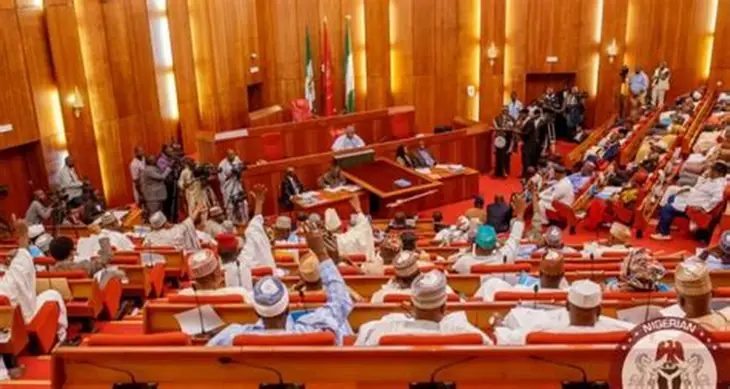
The Senate on Tuesday commended President Bola Tinubu for approving the dualisation of the long-abandoned Akwanga (Nasarawa State)–Jos (Plateau)–Bauchi–Gombe highway, nearly four decades after it was first conceived.
The commendation followed a Point of Order raised during plenary by Senator Abdul Ningi (PDP, Bauchi), who said the project would address years of neglect suffered by communities along the corridor.
Ningi recalled that the Minister of Works, Dave Umahi, had last week announced that the Federal Government had awarded the contract for the dualisation of the Akwanga–Jos–Bauchi–Gombe road.
Moving the motion, the lawmaker said the road, which cuts across several North-Central and North-East states, had remained the only major federal corridor in the country without a dual carriageway.
“Mr President, as representatives of the people and on behalf of senators from Plateau, Bauchi, Gombe, Nasarawa and Adamawa, we emphatically thank the President/ Commander-in-Chief for providing this road.
“This is a road we have waited for almost four decades. Mr President, over the last 40 years, the Nigerian nation seems to have forgotten the people of Plateau, Bauchi, Gombe and Adamawa.
“We want to remind Nigerians that the first Prime Minister of Nigeria comes from Bauchi; the former Head of State, Gen. Yakubu Gowon, comes from Plateau.
“At the material time they were leaving this country, they were not biased; they were for Nigeria. This corridor is the only remaining corridor in this country that does not have a dual carriageway.
“So I would like to thank the president, and I would like to thank Umahi; I will like to thank the senate because there will be provisions that the senate will give in their funding,” he said.
Ningi urged the Senate Committees on Works and Finance to closely monitor the project and ensure adequate funding to guarantee its completion.
Also contributing, Senator Danjuma Goje (APC, Gombe) praised the President for responding to the long-standing demands of residents in the region.
“We have to praise the president. We want to thank him for listening to the plight and to the complaints of our people. I hope after this one, it will proceed from Gombe to Maiduguri,” he said.
The Akwanga–Jos–Bauchi–Gombe highway serves as a major link between the North-Central and North-East regions and has long been associated with frequent accidents, economic losses and security challenges due to its poor state.
















Leave a comment